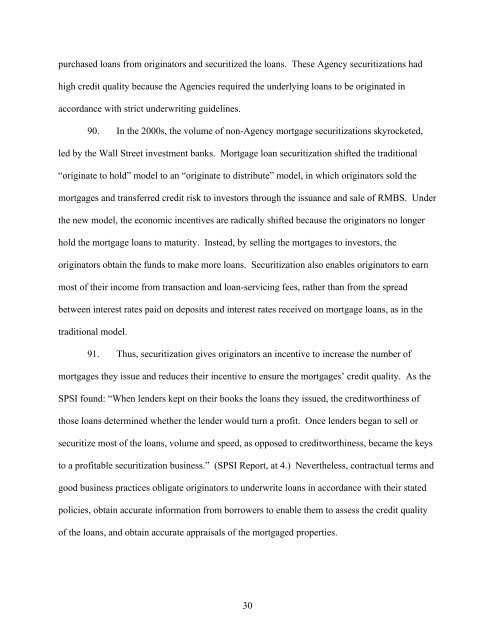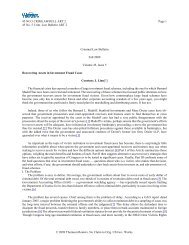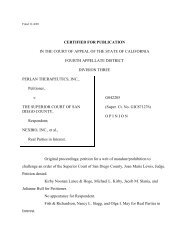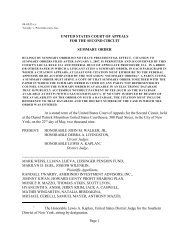SUPREME COURT OF THE STATE OF NEW ... - New York Times
SUPREME COURT OF THE STATE OF NEW ... - New York Times
SUPREME COURT OF THE STATE OF NEW ... - New York Times
You also want an ePaper? Increase the reach of your titles
YUMPU automatically turns print PDFs into web optimized ePapers that Google loves.
purchased loans from originators and securitized the loans. These Agency securitizations had<br />
high credit quality because the Agencies required the underlying loans to be originated in<br />
accordance with strict underwriting guidelines.<br />
90. In the 2000s, the volume of non-Agency mortgage securitizations skyrocketed,<br />
led by the Wall Street investment banks. Mortgage loan securitization shifted the traditional<br />
“originate to hold” model to an “originate to distribute” model, in which originators sold the<br />
mortgages and transferred credit risk to investors through the issuance and sale of RMBS. Under<br />
the new model, the economic incentives are radically shifted because the originators no longer<br />
hold the mortgage loans to maturity. Instead, by selling the mortgages to investors, the<br />
originators obtain the funds to make more loans. Securitization also enables originators to earn<br />
most of their income from transaction and loan-servicing fees, rather than from the spread<br />
between interest rates paid on deposits and interest rates received on mortgage loans, as in the<br />
traditional model.<br />
91. Thus, securitization gives originators an incentive to increase the number of<br />
mortgages they issue and reduces their incentive to ensure the mortgages’ credit quality. As the<br />
SPSI found: “When lenders kept on their books the loans they issued, the creditworthiness of<br />
those loans determined whether the lender would turn a profit. Once lenders began to sell or<br />
securitize most of the loans, volume and speed, as opposed to creditworthiness, became the keys<br />
to a profitable securitization business.” (SPSI Report, at 4.) Nevertheless, contractual terms and<br />
good business practices obligate originators to underwrite loans in accordance with their stated<br />
policies, obtain accurate information from borrowers to enable them to assess the credit quality<br />
of the loans, and obtain accurate appraisals of the mortgaged properties.<br />
30
















